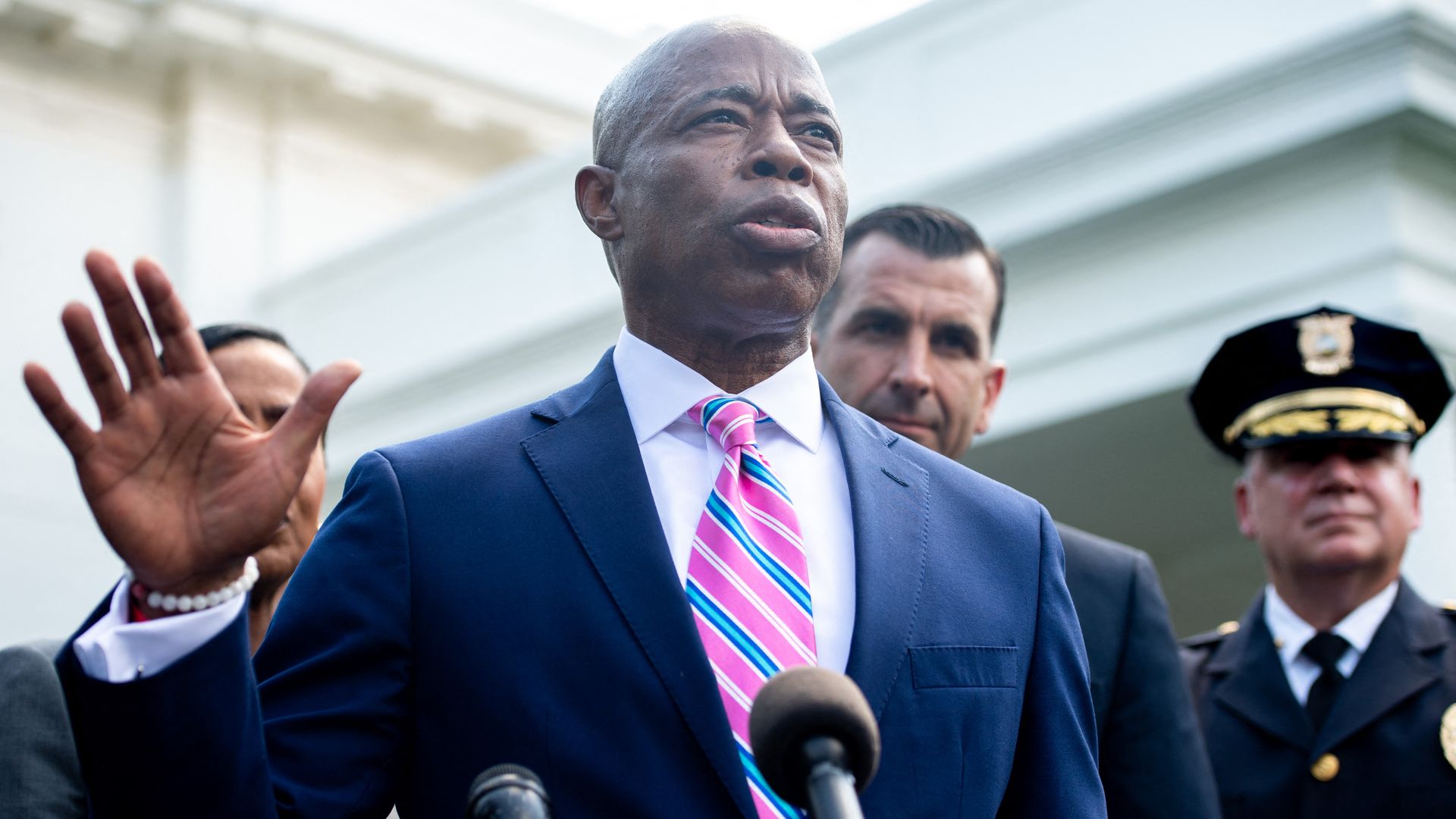| | | | | | | Presented By Lyft | | | | Axios Sneak Peek | | By Alayna Treene and Hans Nichols ·Jul 12, 2021 | | Welcome back to Sneak. The Senate returned for its pre-recess sprint. Smart Brevity™ count: 1,463 words ... 5.5 minutes. Edited by Glen Johnson. | | | | | | 1 big thing: Democrats' spending flip-flop |  | | | Illustration: Sarah Grillo/Axios | | | | Senate Democrats plan to offset some of their "soft" infrastructure spending by using dynamic scoring — a budgetary practice many of them called a gimmick just a few years ago, Axios' Hans Nichols reports. Why it matters: The total size of the Democrat-only reconciliation bill will depend in large part on how much of it can be offset with new revenues. Using budgetary smoke and mirrors shows how hard Democrats are working to pass a big bill. - Negotiators can get some breathing room by relying on traditional deficit spending.
- They also can use dynamic scoring, a term of art for assuming that new programs will be so beneficial for the economy, they'll produce future tax windfalls.
What they are saying: "Dynamic scoring has been used before," Sen. Joe Manchin (D-W.Va.), told Axios, referencing the 2017 Trump tax cuts. "So, sure, I mean there's going to be some dynamic (scoring)." - Dynamic scoring is "both a mixed blessing and an unknown factor," said Sen. Sheldon Whitehouse (D-R.I.). "The extent to which it can be abused is significant. The extent to which it's also useful and accurate is also significant."
The big picture: Republicans have long used dynamic scoring to make the total cost of tax cuts appear smaller. - Now, Democrats are arguing billions of new dollars for programs like universal preschool and free community college will cause productivity gains that, in turn, spur economic growth.
- The $579 billion bipartisan infrastructure package that would accompany the reconciliation bill also includes approximately $60 billion in new dynamic scoring savings.
- It assumes "hard" infrastructure like new roads and bridges will benefit the entire economy.
Flashback: In 2015, House Republicans required the Congressional Budget Office to score proposals by factoring in their overall macroeconomic effect. - Democrats, including Sen. Bernie Sanders (I-Vt.), then the ranking member of the Senate Budget Committee, howled.
- "The Republicans have hatched a plan to force the CBO to cook the books and paint a rosy picture of the benefits of trickle-down economics," Sanders said.
- "They call it 'dynamic scoring,'" he added. "In fact, it's a gimmick to help justify more tax cuts for the wealthy and profitable corporations."
Keep reading. |     | | | | | | 2. Biden's Cuba crisis |  | | | President Biden discusses Cuba before a meeting today focused on gun violence. Photo: Chip Somodevilla/Getty Images | | | | White House efforts to avoid dealing with the Cuba issue have blown up amid protests on the island, congressional backlash and political pressure from the South Florida Cuban community, Axios' Alayna Treene and Sarah Mucha report. Why it matters: Joe Biden's performance in South Florida during the 2020 election explains his wariness — he was crushed by Donald Trump. Democrats are worried they'll hurt themselves in Florida — and more broadly in the midterms — if they mishandle the situation. - President Obama made détente with Cuba — including a trip to the nation — a signature foreign policy.
- President Trump reversed much of that: He added sanctions, put the country back on the U.S. list of state sponsors of terrorism and adopted a hardline approach — in line with critics of Cuba's Communist regime.
- Biden's statement this morning backing the protesters was the first time he's publicly addressed Cuba since becoming president.
Between the lines: Biden's Cuba policy review is ongoing, giving the administration some cover for the time being. - But the review is expected to end soon, sources familiar with the process tell Axios.
Reporters pressed White House press secretary Jen Psaki for more details during her press briefing today. - She said Biden has "(made) clear that he doesn't support the approach of the government of Cuba," but was noncommittal when asked specifically where the issue ranks as a priority.
- The president later told reporters that "the U.S. stands firmly with the people of Cuba as they assert their universal rights. And we call on the government of Cuba to refrain from violence in their attempt to silence the voices of the people of Cuba."
What they're saying: Republicans and outsiders have seized on the protests to attack the administration. The bottom line: The challenge for Democrats isn't entirely from Republicans; their own party is split on the issue. Keep reading. |     | | | | | | 3. By the numbers: Voting, redistricting wars fought in least-white states |  Data: U.S. Census Bureau, via Brookings Institution; Chart: Connor Rothschild/Axios Texas, Georgia, Florida and Arizona have been at the center of a partisan war over voting rules that could impact voters of color — they're also among the top 10 states with the lowest percentage of white residents. The big picture: Every state has seen its non-Hispanic, white population decline during the past decade, according to an analysis of census data by the Brookings Institution's William Frey reviewed by Axios' Stef Kight. The census is also expected to show the first overall decline in the U.S. white population. - Non-white voters have typically leaned Democratic, and in some of the most diverse states, Republicans have pushed measures that could make it harder for some people to vote.
- Republicans also will have complete control over the redistricting process in Texas, Georgia and Florida.
|     | | | | | | A message from Lyft | | Drivers want flexibility – so maintaining independence is essential | | |  | | | | Now more than ever, parents need flexibility. It allows them to earn while balancing work and family priorities. - 93% of drivers say flexibility is very or extremely important.
They depend on the flexibility that independent contracting provides. Learn more in Lyft's Economic Impact Report. | | | | | | 4. Dark money fights dark money |  | | | Illustration: Sarah Grillo/Axios | | | | An obscure progressive nonprofit called the North Fund has scaled up operations during the last two years, allowing the group to quietly work in high-profile legislative fights in Washington and state capitals, Axios' Lachlan Markay writes. Why it matters: The North Fund's structure — and its refusal to reveal financial contributors — make it the latest progressive nonprofit to operate in ways that obscure key financial information from the public, even as it pushes for legislation to limit the role of so-called dark money in politics. What's new: Founded in late 2018, the North Fund's budget shot up from $9.3 million in 2019 to nearly $50 million last year, according to previously unreported records filed with state regulators in Montana. - It doled out nearly $18 million to other progressive groups, according to those records — primarily other nonprofit advocacy groups, but with some going to outright political organizations.
- The North Fund also financed ballot measure campaigns across the country last year, including efforts to legalize marijuana in Montana, expand paid leave in Colorado and reform congressional redistricting in Missouri.
- In addition, the North Fund acts as the legal umbrella for a handful of other organizations, including voting rights group Just Democracy, anti-Big Tech advocacy outfit Accountable Tech and 51 for 51, which pushes for D.C. statehood.
The big picture: The North Fund is shadowy even by the standards of D.C. advocacy groups. It has no website. Its address is a shared workspace. And in March, it won a fight against Montana officials trying to force the group to disclose its donors. - The North Fund's subsidiary organizations are more prominent — and are spending significant sums on some top progressive agenda items.
- Just Democracy, for instance, recently kicked off a seven-figure ad campaign attacking Sen. Kyrsten Sinema (D-Ariz.) over her opposition to nuking the filibuster. It's also pushed heavily for federal legislation that would dramatically increase disclosure requirements for politically active nonprofits.
- The North Fund operates as a "fiscal sponsor" for Just Democracy and other groups under its umbrella, a legal designation effectively allowing those groups to operate as any stand-alone nonprofit would but without submitting their own financial information to the IRS.
- That's an increasingly common structure on the left, with large groups such as the Sixteen Thirty Fund seeding scores of progressive advocacy outfits and steering millions to them in ways that obscure key financial details.
What they're saying: In an emailed statement, North Fund president Jim Gerstein declined to identify any of the group's financial supporters. - "North Fund strictly follows all disclosure requirements at local, state and federal levels, and donors decide for themselves whether to disclose their contributions," he wrote.
Between the lines: Many progressive groups benefitting from that sort of opacity are simultaneously advocating for more political money disclosure. Their excuse is they don't want to handicap their own side in a fight against a well-funded conservative opposition. - "The rules are rigged against Black and Brown people," Just Democracy told Axios in a statement. "Until we win our fight to change them, we're committed to using every tool in our toolbox to stop voter suppression and build a more just democracy."
|     | | | | | | 5. Pic du jour |  | | | Photo: Saul Loeb/AFP via Getty Images | | | | Eric Adams, Brooklyn Borough president and the Democrats' nominee for New York City mayor, speaks outside the West Wing after attending a meeting with President Biden. |     | | | | | | A message from Lyft | | Drivers have spoken, and they want to maintain their independence | | |  | | | | Drivers use the Lyft platform to make work work for them. Outside of Lyft, they are parents, full-time employees, small-business owners, students, and teachers. They need the flexibility that independent contracting provides. Lyft is committed to what drivers want. | | | | 📬 Thanks for reading. A reminder your family, friends and colleagues can subscribe to this or any of Axios' other free newsletters by clicking here. |  | | It'll help you deliver employee communications more effectively. | | | | | | Axios thanks our partners for supporting our newsletters. If you're interested in advertising, learn more here.
Sponsorship has no influence on editorial content. Axios, 3100 Clarendon Blvd, Suite 1300, Arlington VA 22201 | | | You received this email because you signed up for newsletters from Axios.
Change your preferences or unsubscribe here. | | | Was this email forwarded to you?
Sign up now to get Axios in your inbox. | | | | Follow Axios on social media:    | | | | | |









No comments:
Post a Comment